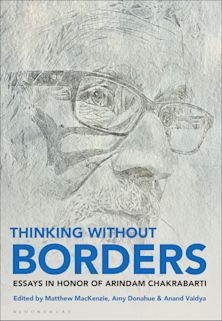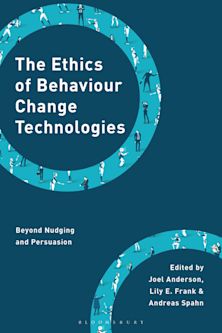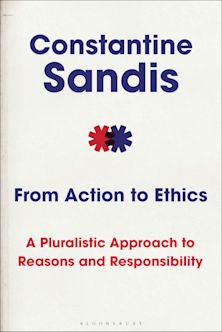Gandhi's Global Legacy
Moral Methods and Modern Challenges
Gandhi's Global Legacy
Moral Methods and Modern Challenges
This product is usually dispatched within 1 week
- Delivery and returns info
-
Free US delivery on orders $35 or over
Description
While there has been sustained interest in Gandhi’s methods and continued academic inquiry, Gandhi's Global Legacy: Moral Methods and Modern Challenges is unique in bringing together an interdisciplinary group of scholars who analyze Gandhi’s tactics, moral methods, and philosophical principles, not just in the fields of social and political activism, but in the areas of philosophy, religion, literature, economics, health, international relations, and interpersonal communication. Bringing this wide range of disciplinary backgrounds, the contributors provide fresh perspectives on Gandhi’s thought and practice as well as critical analyses of his work and its contemporary relevance.
Edited by Veena R. Howard, this book reveals the need for reconstructing Gandhi’s ideas and moral methods in today’s context through a broad spectrum of crucial issues, including pacifism, health, communal living, gender dynamics, the role of anger, and peacebuilding. Gandhi’s methods have been refined and reimagined to fit different situations, but there remains a need to consider his concept of Sarvodaya (uplift of all), the importance of economic, gender, and racial equity, as well as the value of dialogue and dissenting voices in building a just society. The book points to new directions for the study of Gandhi in the globalized world.
Table of Contents
Veena R. Howard
Part 1. Gandhi's Legacy: Lessons of Nonviolence as the “Creative Force of the Universe”
Chapter 1. Mohandas Gandhi: A Challenge to America
The Reverend James M. Lawson Jr. with Veena R. Howard
Chapter 2. Gandhi's Century
Erica Chenoweth
Chapter 3. The Moral, Philosophical, and Spiritual Basis of Gandhi's Transformative Nonviolence
Douglas Allen
Part 2. Gandhi's Legacy: Lessons in Gender Issues, Pacifism, and International Relations
Chapter 4. Gandhi's Encounter with the British Suffrage Movement: Lessons Learned
Gail M. Presbey
Chapter 5. Was Gandhi a Pacifist? Decolonizing Pacifism While Unpacking the Social Ontology of Nonviolence
Andrew Fiala
Chapter 6. A Gandhian Approach to International Relations
Debidatta Aurobinda Mahapatra
Part 3. Gandhi's Legacy: Lesson in Health and Healing, Pluralism, and Public Memory of Gandhi's Communes
Chapter 7. Prophylactic and Physic: Mahatma
Product details
| Published | Nov 30 2022 |
|---|---|
| Format | Hardback |
| Edition | 1st |
| Extent | 372 |
| ISBN | 9781793640369 |
| Imprint | Lexington Books |
| Illustrations | 1 b/w illustrations; |
| Dimensions | 9 x 6 inches |
| Series | Studies in Comparative Philosophy and Religion |
| Publisher | Bloomsbury Publishing |
Reviews

ONLINE RESOURCES
Bloomsbury Collections
This book is available on Bloomsbury Collections where your library has access.



































